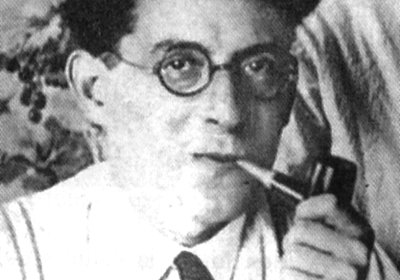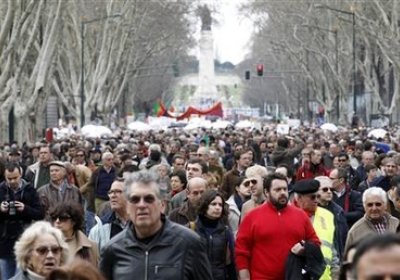A man is sitting in a cell of the Soto del Real prison on the outskirts of Madrid, plotting the downfall of the People’s Party (PP) government of Prime Minister Mariano Rajoy. He is blind with rage and determined to use everything he knows to annihilate Rajoy and his cabinet.
The man is not a left-wing activist. He is a former senator and national treasurer of the party whose leaders he now loathes. His name is Luis Barcenas, known in PP inner circles as “Luis the Arsehole”. He has accumulated up to €48 million in Swiss, Uruguayan and other bank accounts.
Dick Nichols
The latest opinion polls in the Spanish state have stirred concern in the elites, hopes on the left and storms of comment in the media.
Nationally, they show the radical federation United Left (IU) closing the gap on the social-democratic Spanish Socialist Workers Party (PSOE). In the June Metroscopia poll, IU trailed just 4.7% behind the PSOE (16.8% to 21.5%).
Regionally, Spanish social democracy’s decline is most advanced in Catalonia and Galicia. In Madrid city council IU would jump from 10.7% to 20.5% of the vote, just 1.6% behind the PSOE.
The June 27 general strike in Portugal, the fourth since the country became an economic protectorate of the European Commission, European Central Bank and International Monetary Fund “troika” in 2011, was marked by several important firsts.
It was the largest general strike to date, with 80%-100% support from public sector workers and a clear rise in support from private sector workers.
It took 76 years and one day since his abduction on the orders of Stalin during the Spanish Civil War (1936-39), but on June 17 all parties of the Catalan left came together in Barcelona to recognise the contribution to the Catalan and Spanish working people of revolutionary fighter Andreu Nin.
At midnight on June 16, 1937, Nin, the general secretary of the Workers Party of Marxist Unification (POUM), was abducted by Stalinist agents outside the POUM’s headquarters.
Jose Maria Aznar, Spain’s messianically neoliberal former prime minister, announced during a television interview on May 21 that he was ready again to serve his country.
“I will act in accordance with my responsibility, my conscience, my party and my country, regardless of consequences, have no doubt about that”, intoned the Popular Party (PP) leader who took Spain to war in Iraq. Aznar was defeated in the 2004 national election after claiming that the Madrid train bombing was the work of Basque Homeland and Freedom (ETA).
The largest left protest ever against the policies of a French Socialist Party (PS) government took place in Paris on May 5. To the stirring sounds of the protest anthem “On Lache Rien” (“We Don’t Give In”), up to 180,000 workers, pensioners, unemployed and students marched from the Bastille to Place de la Nation.
May Day this year in Spain was not built as a special mobilisation against austerity, poverty and unemployment, and did not coincide with a general strike. Despite that, this was not a ritualistic May Day.
The 39th anniversary of Portugal’s 1974 “revolution of the carnations” that overthrew a 48-year-long dictatorship, was marked on April 25 by a huge march against austerity in Lisbon.
The symbols of that revolution — the carnations and the song “Grandola, Vila Morena” (broadcast in the early hours of April 25, 1974 as the signal to start the revolt )— were massively present.
They now stand for the need for another rebellion, this time against the austerity imposed on the country by the “troika” -- the European Union, European Central Bank and International Monetary Fund.
The citizens of the Spanish state awoke on April 14 to shocking news ― acts of “pure Nazism” were spreading across the country.
Not only that, but they were being organised in concert with “elements close to ETA” (the armed Basque independence group that has declared a permanent ceasefire).
Who was responsible? A Spanish equivalent of the Greek neo-Nazi outfit Golden Dawn? Some surviving cell of the Falange (one-time shock troops of the Franco dictatorship and admirers of Hitler’s New Order in Europe)?
The admission on April 2 by former French Socialist Party (PS) government budget minister Jerome Cahuzac that he did have a Swiss bank account for tax evasion purposes has set off a storm of disgust and fury in France.
The already unloved government of prime minister Jean-Marc Ayrault has been shaken to its core. President Francois Hollande’s popularity has sunk faster and lower than that of any president in the history of France’s Fifth Republic.
It is not hard to see why. Here was the minister entrusted with the fight against tax fraud found out to be a lying tax cheat.
At the third national congress of the Left Party (Parti de Gauche) held in Bordeaux from March 22 to 24, France’s newest and fastest-growing socialist group seemed to come of age.
Only four years old, the Left Party was born after its leading figure, Jean-Luc Melenchon, long-time leader of left currents in the Socialist Party (SP), abandoned it after the tendencies in the SP opposing neoliberal austerity mustered only 19% support at its 2008 congress.
Whenever there is a protest in Portugal you are almost certain to hear the haunting song “Grandola, Vila Morena” (“Grandola, sunburnt town”), with its line “who most rules within you, O city, is the people”. On March 2, at huge protests across Portugal, “Grandola, Vila Morena” was sung by more voices than ever before.
- Previous page
- Page 18
- Next page








